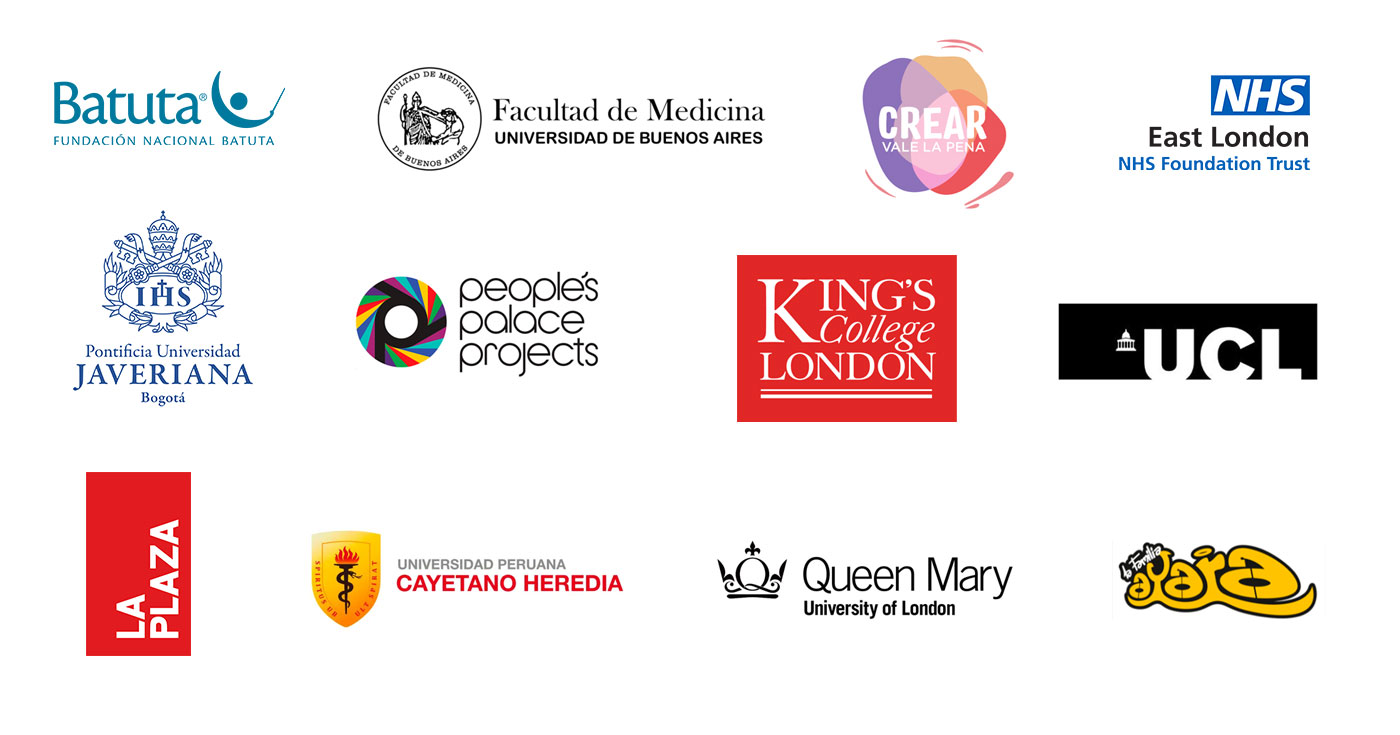Far Apart but Close at Heart
How do arts organisations in Latin America support the mental health of young people online during a global pandemic?
The COVID-19 pandemic has created an urgent problem for mental health in young people. This is highlighted by research showing links between the current and previous pandemics and social distancing with mental health difficulties, including depression and anxiety.
Community arts-based organisations work with young people living in vulnerable territories to explore and express problems and social realities, therefore playing a significant role in promoting mental health. These organisations were forced to suddenly and rapidly move their activities online due to the Covid-19 pandemic, in order to continue working with and supporting young people.
OLA therefore aims to identify resources that help young people to prevent or recover from mental distress, including depression and anxiety. We will focus on adolescents (aged 15-16) and young people (aged 20-24) who live in three large Latin American cities: Buenos Aires, Bogotá and Lima. We are keen to include both adolescents and young people who are currently experiencing symptoms of mental distress and those who are not.
Aim
This project seeks to explore how arts organisations in four low- and middle-income countries in Latin America have moved their activities to online platforms to support the mental health of young people aged 14-24 years old, and the impact of this change on young people and arts workers.
Project timeline
September 2020 – October 2021
Who is involved?
This project is funded by the Arts and Humanities Research Council.
Queen Mary University of London and People’s Palace Projects are working in collaboration with:
Crear Vale La Pena, Argentina
Redes da Maré, Brazil
Fundación Nacional Batuta, Colombia
Familia Ayara, Colombia
Teatro La Plaza, Peru
Study design
This study has collected qualitative and quantitative data to explore experiences using traditional research and arts-based methods.
What do we hope to achieve with this study?
We believe that many of these new methods for delivering activities online will remain if and when the pandemic subsides. This project will therefore provide an evidence-base to inform future long-term delivery of activities by five specific community arts organisations, and other similar organisations across four Latin American countries, to support mental health in vulnerable young people.
One of our more specific objectives was to build research capacity in community arts organisations, to enable them to secure future research funding. It is vital to facilitate and preserve the work of community arts organisations in not only promoting specific art forms that play a crucial role in mental wellbeing in young people, but also their specific role in social transformation.
Each arts organisation has substantial links with government, cultural and social service departments and is well networked both within their own countries and across Latin America. We are therefore working towards the findings from this study facilitating longer-term impact and support for arts organisations within Argentina, Brazil, Colombia and Peru.
A specific set of online artistic outputs from the creative workshops narrated the challenges faced by young people during this pandemic. As well as giving a voice for young people to share their experiences using artistic methodologies, these narratives are likely to highlight the importance of supporting mental health in young people during a health emergency and beyond. We hope that sharing the creative outputs from the arts workshops will encourage other young people to engage in this dialogue about mental health.
Research activities
Systematic data collection of arts organisations’ shift in their activities to online platforms:
To assess how each arts organisation has adapted their activities to online modes of delivery due to the COVID-19 lockdown, including how activities were set up and used, and how challenges were resolved.
Semi-structured interviews with 50 stakeholders and workers from arts organisations:
Interviews focused on how interviewees experienced the move of activities to online platforms, what training or support was helpful, how the new delivery can stimulate creative activities, and what is lost and gained as result of online delivery of activities.
Semi-structured interviews with 50 participants aged 14-24 years old:
Interviews addressed how the shift of activities to online platforms was experienced, how it affected their relationships with arts workers and peers, and what impact the online arts-based activities had during the COVID-19 pandemic.
Online survey with participants aged 14-24 years old:
The survey captured experiences of moving activities to online platforms using a small number of questions based on core experiences identified in the semi-structured interviews. The survey has been completed by XXX young people.
Creative arts workshops:
Five sets of online creative workshops with 5-10 participants were run across one month. Each arts organisation devised and implemented a project based on a different art form (e.g. graffiti, rap, dance, theatre, music, poetry). Workshops addressed questions around how the crisis impacted on life and how these changes, including social distancing, was experienced and dealt with. Each set of workshops produced an artistic output (a digital play, rap, music presentation, choreography, spoken word poetry, etc.) based on young people’s lived experience of the COVID-19 pandemic. These were shared on digital platforms already used by the organisations.
Funded by

Partners


Copyright © 2021. All Rights Reserved
Financiado por

Socios




